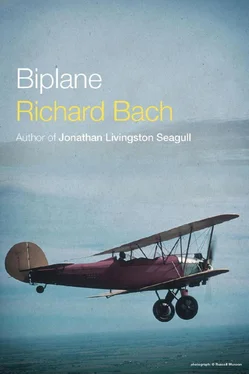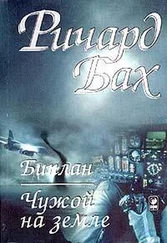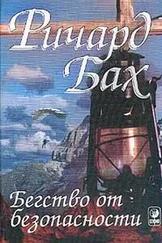Ричард Бах - Biplane
Здесь есть возможность читать онлайн «Ричард Бах - Biplane» весь текст электронной книги совершенно бесплатно (целиком полную версию без сокращений). В некоторых случаях можно слушать аудио, скачать через торрент в формате fb2 и присутствует краткое содержание. Город: New York, Год выпуска: 2012, ISBN: 2012, Издательство: Scribner, Жанр: Современная проза, на английском языке. Описание произведения, (предисловие) а так же отзывы посетителей доступны на портале библиотеки ЛибКат.
- Название:Biplane
- Автор:
- Издательство:Scribner
- Жанр:
- Год:2012
- Город:New York
- ISBN:978-1-4516-9744-5
- Рейтинг книги:3 / 5. Голосов: 1
-
Избранное:Добавить в избранное
- Отзывы:
-
Ваша оценка:
- 60
- 1
- 2
- 3
- 4
- 5
Biplane: краткое содержание, описание и аннотация
Предлагаем к чтению аннотацию, описание, краткое содержание или предисловие (зависит от того, что написал сам автор книги «Biplane»). Если вы не нашли необходимую информацию о книге — напишите в комментариях, мы постараемся отыскать её.
Biplane — читать онлайн бесплатно полную книгу (весь текст) целиком
Ниже представлен текст книги, разбитый по страницам. Система сохранения места последней прочитанной страницы, позволяет с удобством читать онлайн бесплатно книгу «Biplane», без необходимости каждый раз заново искать на чём Вы остановились. Поставьте закладку, и сможете в любой момент перейти на страницу, на которой закончили чтение.
Интервал:
Закладка:
“Flight Service.”
“Hi, Flight Service. Going Augusta on out around Columbus, Auburn-Jackson-Vicksburg. What you got for weather?” I remember the advice an airline captain once gave me. Never listen to a weatherman’s forecast. The weather that’s there is the stuff you fly through, and you’ll never know what that’s like till you get there.
“Looks like a good day. Columbus is clear and twelve miles visibility, Jackson is clear and twenty, Vicksburg clear and twenty. Dallas is clear and fifty, if you want that. Forecast will be for scattered cumulus on into the afternoon, maybe some scattered showers or thundershowers.”
“Any winds, surface to five thousand feet?” I wait in interest, consuming a potato-chip breakfast and a bottle of Pepsi-Cola.
“Ah, let’s see. Surface winds light and variable through Columbus, going west at ten by the time you get into Jackson-Vicksburg. Five-thousand-foot winds are three three zero degrees fifteen knots, all the way. Looks like it will be a good day.”
“Good. Thanks for the weather.”
“Can I have your aircraft number?”
“Four nine nine Hotel.”
“OK. You want to file a flight plan?”
“Might be nice, but I’m a no-radio airplane.”
He laughs, as though I had made some sort of mildly funny joke: an airplane with no radio. “Well then, guess there’s not too much we can do for you. ”
“Guess not. Thanks for the weather.”
Ten minutes from the moment that the telephone touches the cradle near the black button and its list of directions, a biplane is airborne once again over Georgia, flying west. The chill in the air is now a comfortable chill, and not cold. Even without Flight Service doing anything for me, it is fun to be flying. Winds from the west at altitude; those will be headwinds, and those we can do without.
We stay as low as we can, still keeping within gliding range of fields fit for landing. At times this is not very low, for the fields are scattered, intruders in the kingdom of pines that mat the earth as far as I can see. Here a road cutting through to parallel my railroad track, here a small lake and pasture, then the pines again, all around. They are old green, dark green, and among them the fresh young lime green of the leaved trees turning early to the sun, looking at it still in wonder. So many trees, so very many trees.
Along the side of a dirt road, a weathered house, a tangled yard. The shadow of the biplane flicks over its chimney and the engine noise must be loud and unusual. No door opens, though, no sign of movement. Now it is gone, and lost behind.
Who lives in the house? What memories does it have tucked into its wood; what happiness has it seen, what joys and what defeats? A full world of life, there, and sorrow and pleasure and gain and loss and interest and bright things happening day on day as the sun rises over the same pines to the east and sets over the same pines to the west. A whole world of important things happening, to real people. Perhaps tomorrow night there is a dance in Marysville, and inside the house there are gingham dresses being ironed. Perhaps a decision made to leave the house and seek a better living in Augusta or Clairmont. Perhaps and perhaps and perhaps. Perhaps there is no one in the house, and it is the body of a house, only. Whatever it is, whatever its story, it took the shadow of the biplane something less than half a second to cross it, and leave it dwindling away behind.
Come, now. Let’s stay awake on our navigation. Where are we, by the way? How many miles out from Augusta and how many miles left to go into Auburn? How’s that groundspeed? What’s our estimate over the next checkpoint? What is the next checkpoint? Do I even know our next checkpoint?
Listen to all those old questions. They used to be such important questions, too. Now, in the biplane, they don’t matter at all. The question of finding a destination was solved before we took off; there is three hours flying to Auburn, I have five hours of fuel. I follow a railroad track. End navigation problem. At one time away off in the future it was a great game to compute estimates and groundspeeds and to tell to the second when the wheels would touch at destination. But that was with a different sort of airplane and in a world where answers were important things. Miss the estimate and a host of other airplanes would have to be advised. When fuel was critical, and gallons of it burned in a minute, one kept a close watch upon headwinds and groundspeeds. A headwind too strong meant that there wasn’t enough fuel to reach destination and one had to land short to refuel. Critical, critical, every bit of it.
Now, in 1929, what matter? With headwinds, I’ll arrive a half-hour later, or an hour later, with still an hour’s flying left in the tank. I am not in a hurry, for anyone who flies an old slow biplane cannot afford to be in a hurry. What matter if I do not make it to destination? I’ll land sooner, at a different destination, and in the next flight pass over my first goal, to another beyond. In 1929, without radio or navigation equipment or an anxious agency waiting my arrival, I am on my own. Seeing a smooth pasture, I can land and take time without worry, and perhaps even trade a ten-minute flight for a homecooked meal.
I know roughly where I am. The sun rises in the east and it sets in the west; I need only follow the setting sun, without ever glancing at a map, and in time I will reach the other coast of the United States. Any town of size has an airport and fuel. Climb, then, when the fuel is getting low, find the town, fill the tank and go on into the west.
The biplane rachets and thunders through the low sky, brightwinged, whirring, pulling a shadow ninety miles per hour across the sandy earth and through the needled treetops. Things moving, things to watch, air to drink and to slice into long ribbons with wingwires. But still the strange touch of the dream so long dreamed.
Perhaps in a few thousand years flight will become something we can accept and believe to be real. Do the gulls enjoy flying, and the hawks? Probably not. Probably they wish that they could stride along the ground, and know what it is to be held firmly down and not subject to every toss of an air current. I’d like to say, “I’ll trade you, hawk,” but I’d want to attach a few strings to the deal. The more I consider it, the more strings there would be to attach, until in the end I’d only want to be me, with an ability to fly. And this is what I am at this moment. I’ll still take my life and my clumsy clattery way of moving through the air. For in working and striving and sacrificing for this way of flying, I can enjoy it fully; give me flight without effort and I’ll turn shortly, bored, to something that challenges.
A challenge: let us invent a way that will allow us to fly. And poor earthbound man sought and dreamed and worked for a long time before he struck upon an answer. Try wings like the birds’ wings, try sails like a boat’s, try the flame of gunpowder rockets. Try and try and try. Kites and cloth and feathers and wood and steam engines, nets about birds and frames of bamboo. Then bamboo with cloth stretched and a cradle for the man pilot. If I build a mountain and stretch my bamboo wings at the top, and run down the side of the mountain into the wind. and there he had it. Man at last was flying. Months of flights from the mountaintop, but still, it should be able to last longer, I should be able to taste more fully this rare sweetness. Oars, then, and pedals and treadmills and handcranks and paddlewheels and flapping wings and a little homebuilt gasoline engine. If we take the engine, and attach a chain drive that can turn two propellers and fit it all to the wings and perhaps the pilot can lie down on the lower wing. Another step made, another beginning. A beginning laid down for all mankind to work from.
Читать дальшеИнтервал:
Закладка:
Похожие книги на «Biplane»
Представляем Вашему вниманию похожие книги на «Biplane» списком для выбора. Мы отобрали схожую по названию и смыслу литературу в надежде предоставить читателям больше вариантов отыскать новые, интересные, ещё непрочитанные произведения.
Обсуждение, отзывы о книге «Biplane» и просто собственные мнения читателей. Оставьте ваши комментарии, напишите, что Вы думаете о произведении, его смысле или главных героях. Укажите что конкретно понравилось, а что нет, и почему Вы так считаете.





